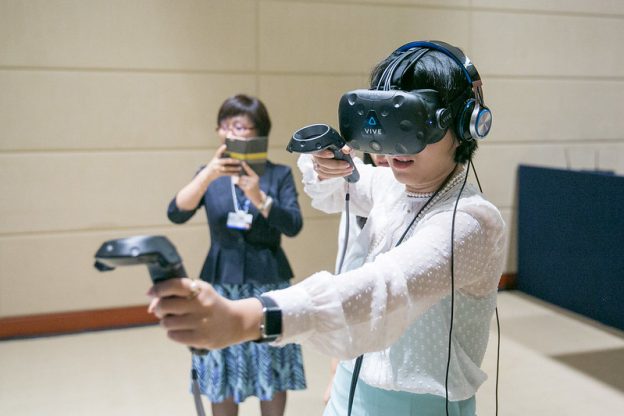Caroline Valencia – Amazon, Apple, Facebook, and Google – the big Four or Big Tech – have invested heavily to create the metaverse: a virtual reality world where users’ avatars can socialize, learn, and play in a 3-D space. In December, Meta – formerly known as Facebook – released Horizon Worlds in the United States and Canada to everyone ages eighteen and older. One issue that surfaced shortly after its launch involved the use of personal space of people on the platform. Users experienced sexual harassment, assault, bullying, and hate speech. These events prompted users to share their experiences on social media. One user wrote, “Not only was I groped last night, but there were other people there who supported this behavior.”
In December, the Vice President of Metaverse Research for Kabuni Ventures, Nina Patel, wrote in an online post that her avatar was verbally and sexually harassed by a handful of male avatars within sixty seconds of joining Horizon Worlds. She also received suggestive comments from the avatars’ users during the assault. In response, Meta implemented a “personal boundary” to stop sexual harassment. The barrier will “make it feel like there is an almost 4-foot distance between your avatar and others.” If someone tries to enter your personal boundary, the system will halt their movement. The company hopes this boundary will usher in some “behavioral norms.”
Although this measure will protect future users, it provides no recourse for Patel. The metaverse’s interactive and immersive digital environment heightens a user’s sensory experiences making incidents like the one she experienced particularly disturbing. A study conducted by Virtual Human Interaction Lab found that the same areas of the human brain light up when an individual has a virtual reality or real-world experience. Thus, harassment in virtual reality environments – the likes experienced by Patel – can cause a user just as much harm and emotional distress as harassment experienced in the real world.
Joseph Jones, president of Bosco Legal Services, an investigation agency specializing in cyber and social media, said it’s unlikely Patel has a strong legal case. Jones noted the case would depend on several factors, such as the specific comments made by users and whether Patel’s avatar revealed any identifiable information, such as her name. Given that Patel lacks a large online following, it’s unlikely she could sue for defamation, but she could file a civil restraining order to prevent it from happening again. Jones states that even this may pose challenges because the male avatars may be anonymous and hard to track down. He also notes that it is difficult to get help on a case like this. Jones added, “with the large majority of harassment that happens online, even if it is criminally actionable, you would be hard-pressed, I would say almost impossible, to find a law enforcement agency legitimately willing to help.”
This raises concerns for victims of metaverse sexual harassment. The same crimes and human violations committed in the real world can be committed in the metaverse. With the growing popularity of online and virtual social spaces, civil and criminal laws should be adapted to better respond and protect virtual users. Until civil and criminal laws adapt to the ever-evolving tech world, intentional infliction of emotional distress (IIED) may provide victims of online sexual assault with an outlet to receive compensation. IIED permits the imposition of civil liability if a defendant has intentionally acted in an extreme and outrageous manner that caused severe emotional distress to the victim. However, it may be difficult for victims to show that the conduct was outrageous enough to “go beyond all reasonable bounds of decency.” What would be considered outrageous in a virtual reality game? This would vary on a case-by-case basis. For example, an assault on the avatar that is made to resemble the user would undoubtedly be more traumatic. Although the viability of this approach is uncertain, it may provide solace and compensation to victims of these emotional distressing assaults.


